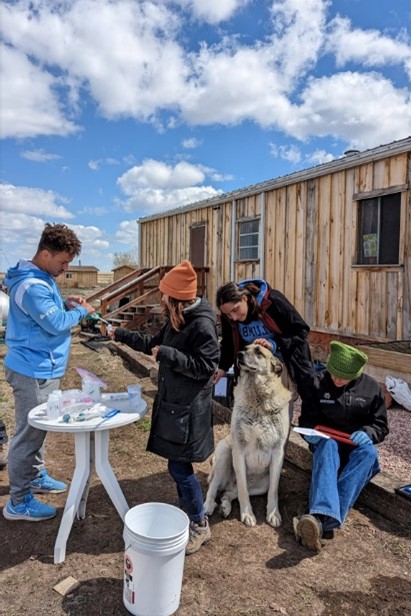Superfund Research Program
June 2023
 SRP Center investigators, graduate students, and Missouri Breaks staff collect water samples from study households. From left to right, Caden Pourier, Adina Cazacu-De Luca, Kathrin Schilling, Tavehon McGarry, and Anirban Basu.
SRP Center investigators, graduate students, and Missouri Breaks staff collect water samples from study households. From left to right, Caden Pourier, Adina Cazacu-De Luca, Kathrin Schilling, Tavehon McGarry, and Anirban Basu.(Photo courtesy of Benjamin Bostick)
NIEHS Superfund Research Program (SRP)-funded researchers recently installed filtration systems in Native American communities to reduce exposure to and the health effects of arsenic-contaminated drinking water. Led by the Columbia University Northern Plains SRP Center and in partnership with Northern Plain Tribal Nations and the Indian Health Service, the team installed arsenic filters under household kitchen sinks and launched a corresponding educational campaign.
Center Director Ana Navas-Acien, Ph.D., and Christine George, Ph.D., of Johns Hopkins University, collaborated with colleagues at Missouri Breaks Industries Research, Inc., to design and implement the drinking water intervention in households participating in the Strong Heart Study in North and South Dakota. Missouri Breaks is a Native American-owned research organization that has worked with Tribal Nations for more than 25 years and leads the Strong Heart Study in those communities.
“This intervention is an exemplary model that can help many other communities facing similar issues with arsenic contamination of drinking water in private wells,” said Tracy Zacher, who directed the fieldwork for Missouri Breaks.
To learn more, see the NIEHS Environmental Factor newsletter.


